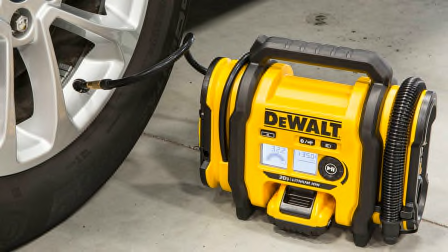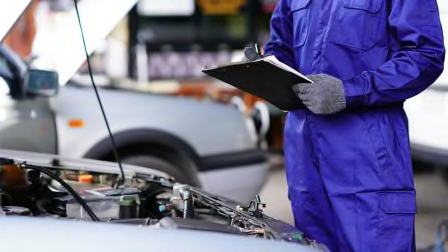How Often Should You Wash Road Salt Off Your Car?
Plus, 10 tips to help keep your vehicle clean during the winter months

Road salt, or a liquid version of it, is used to melt snow and ice on roads across the U.S. It’s very effective for making roads safer, but salt accelerates rust, which can damage safety-related equipment for braking, steering, suspension, and fuel systems. Plus, it can cover headlights, taillights, and the sensors for automatic emergency braking.
To combat the potential ill effects of salt, Consumer Reports’ experts advise a monthly car wash during snow season—or more often if the vehicle is coated in salt. We recommend a touchless wash that cleans your whole car, including the undercarriage. (After snow falls, be sure to clear the entire car body to make sure that all cameras and sensors are able to work properly.) The underbody spray is often an added charge, but it’s a worthwhile upgrade to remove salt.
Winter Car Wash Tips
Choose the right car wash. Is the facility clean? Is the building well cared for? If the owners take care of the outside of the business, chances are they also invest in equipment and its maintenance inside.
Cheaper isn’t always better. Car washes that seem really inexpensive might cut corners, such as using more caustic soaps that remove dirt easily but aren’t as good for a car’s finish.
How to Use Ice Melt Without Damaging Surfaces, Plants, or Your Pet's Paws
Use these tips for de-icing your driveway, sidewalks, and other pathways.
Best Auto Products
Car Batteries • Car Tires • SUV and Truck Tires • Winter/Snow Tires • Infant Car Seats
More Car Questions Answered
• Should You Warm Up Your Car Before Driving?
• What’s the Fastest Way to Defog Car Windows?
• What Is a Reasonable Lifespan for a Modern Car?
• Is Age or Mileage More Important When Buying a New Vehicle?
• Will You Void a Car Warranty by Not Having Your Car Serviced at the Dealership?




